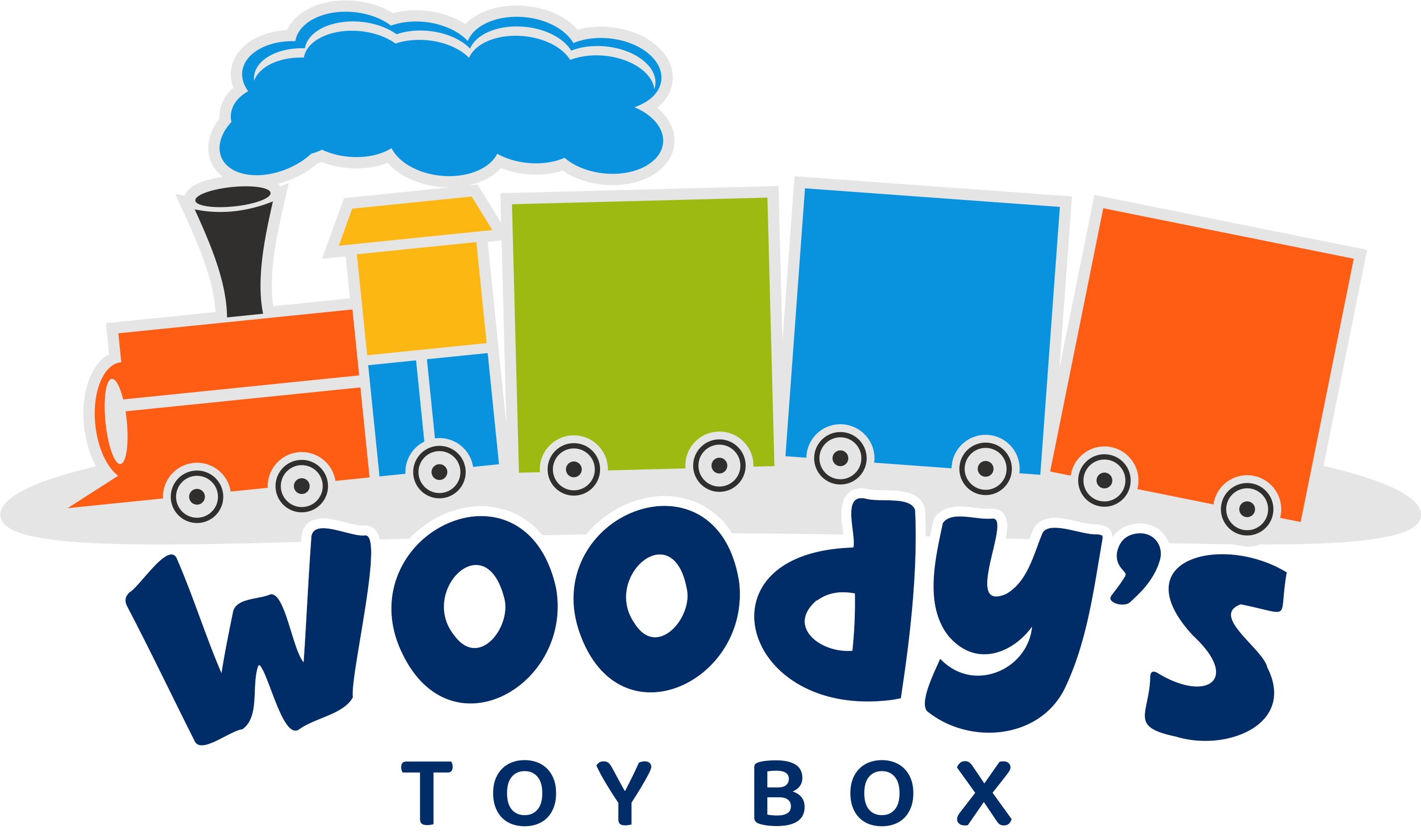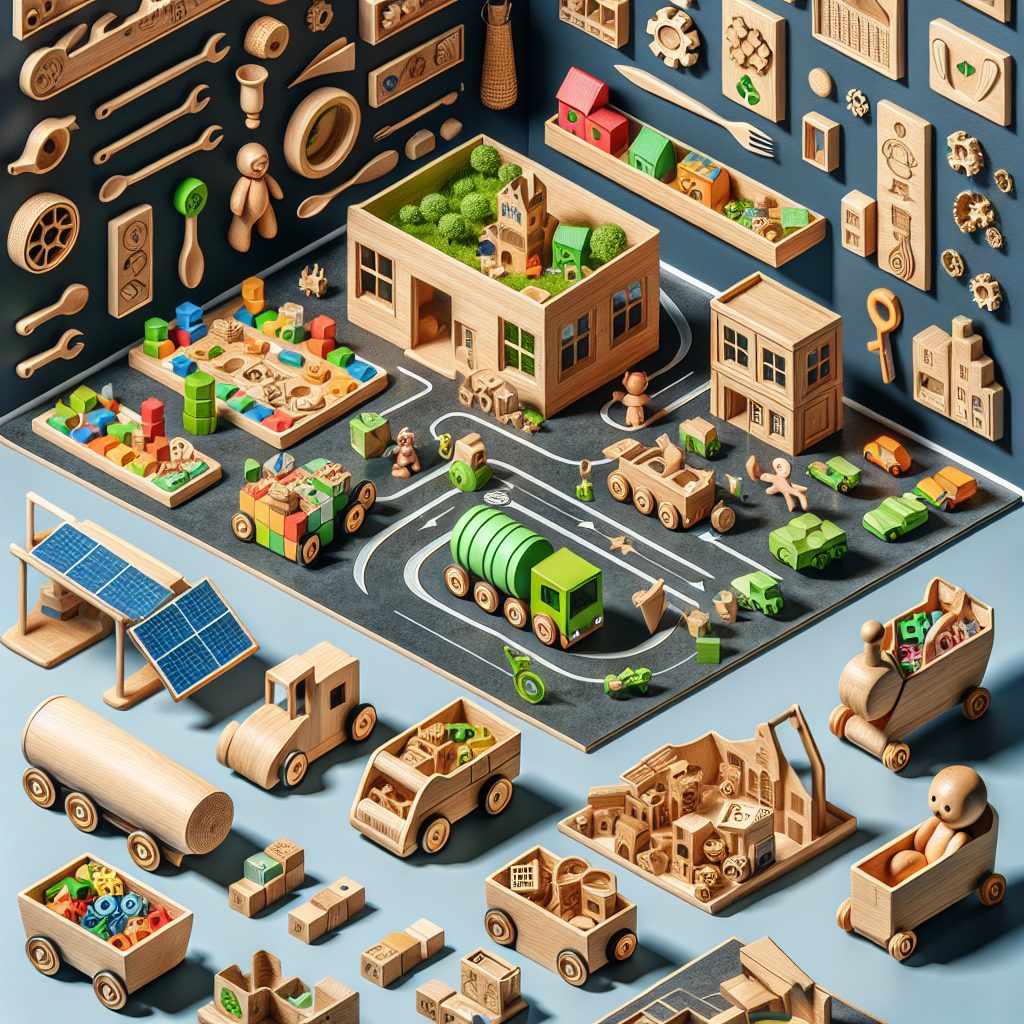The emerging trends in the sustainable wooden toy industry have been gaining significant attention in recent years. With a growing focus on environmental sustainability and consumer demand for eco-friendly products, the wooden toy industry has witnessed a remarkable transformation. Wooden toys, made from sustainable materials such as certified hardwood, are considered a more environmentally friendly alternative to plastic and electronic toys. Moreover, these toys are often designed to be durable and timeless, allowing for multiple generations of play and reducing waste. This shift towards sustainability in the toy industry has not only had a positive impact on the environment but also offers unique features and benefits for both children and parents.
Moving forward, let’s explore some key takeaways from the emerging trends in the sustainable wooden toy industry. Firstly, the use of sustainable materials in toy production aligns with the current global focus on reducing carbon footprints and minimizing waste. Additionally, wooden toys are known for their craftsmanship and timeless design, providing a sense of nostalgia for parents while also promoting sensory and imaginative play for children. Furthermore, the durability of these toys means they can withstand the wear and tear of play, making them a long-lasting investment that can be passed down through generations. In the following sections, we will delve into the specific impacts and benefits of these emerging trends, highlighting how they contribute to a more sustainable and enriching toy industry experience.
Key Takeaways
1. Increasing consumer demand: The sustainable wooden toy industry is experiencing a surge in demand due to growing awareness about environmentally friendly products and parents’ preference for safer alternatives to plastic toys.
2. Environmentally conscious manufacturing practices: Toy companies are adopting sustainable practices by using responsibly sourced wood, minimizing waste, and employing eco-friendly production techniques, aligning their business goals with the broader agenda of sustainability.
3. Educational benefits: Sustainable wooden toys are not only environmentally friendly but also offer numerous educational benefits. They stimulate children’s creativity, cognitive development, and motor skills, promoting learning through play.
4. Positive impact on local communities: The production of sustainable wooden toys often involves small-scale, local businesses and artisans, thereby supporting local economies and preserving traditional craftsmanship.
5. Long-lasting and timeless: Unlike their plastic counterparts, wooden toys are durable and can be passed down through generations. They not only have a longer lifespan but also promote a sense of nostalgia and connection to nature, attracting consumers who value quality and longevity in their toys.
What are the Emerging Trends in the Sustainable Wooden Toy Industry?
The Rise of Eco-Friendly Materials
In recent years, there has been a growing demand for toys that are not only fun and entertaining but also sustainably made. This has led to a surge in the popularity of wooden toys, particularly those made from sustainable materials. Wooden toys are often crafted from ethically sourced wood, such as bamboo or FSC-certified timber. These toys are free from harmful chemicals and can be easily recycled or biodegraded, making them an eco-friendly choice for environmentally conscious parents.
Shift towards Educational and Developmental Toys
In today’s fast-paced world, parents are increasingly seeking toys that not only provide entertainment but also promote learning and development. Wooden toys are known for their durability and timeless appeal, making them ideal for fostering creativity, problem-solving skills, and cognitive development. Many wooden toys are designed to encourage imaginative play, fine motor skills, and hand-eye coordination, catering to the educational needs of children in a holistic manner.
Integration of Technology
While wooden toys are often associated with traditional play, the industry is embracing technology to enhance the play experience. This includes the incorporation of smart features, such as interactive apps or augmented reality elements, into wooden toys. These technological advancements add an exciting twist to wooden toys, engaging children in interactive and immersive play that combines the timeless charm of wood with the benefits of modern technology.
Focus on Sustainability and Ethical Practices
As consumers become more conscious about the environmental impact of their purchasing decisions, the wooden toy industry is responding by prioritizing sustainability and ethical practices. Companies are opting for eco-friendly production processes, using non-toxic paints and finishes, and ensuring fair labor practices throughout the supply chain. Additionally, some manufacturers are actively involved in reforestation efforts, planting new trees to compensate for the wood used in toy production.
Customization Options
One of the emerging trends in the sustainable wooden toy industry is the availability of customization options. Manufacturers are offering personalized wooden toys that can be tailored to a child’s preferences or even engraved with their name. This not only adds a sentimental value to the toys but also allows parents to select toys that align with their child’s individual interests and development stage.
What are the Key Tips for Embracing Sustainable Wooden Toys?
1. Look for toys made from sustainable materials like bamboo or FSC-certified timber.
2. Check for non-toxic paints and finishes used in the manufacturing process.
3. Opt for educational and developmental wooden toys that promote creativity and learning.
4. Support companies that prioritize sustainability and ethical practices throughout their supply chain.
5. Consider customized wooden toys to add a personal touch and cater to your child’s interests.
Frequently Asked Questions
1. What are sustainable wooden toys?
Sustainable wooden toys are toys made from responsibly sourced wood that is harvested using environmentally friendly practices. These toys are designed to be durable, non-toxic, and eco-friendly, promoting a more sustainable and healthier playtime for children.
2. Why are sustainable wooden toys becoming popular?
Sustainable wooden toys are becoming popular due to growing concerns about plastic waste and its impact on the environment. Parents are increasingly looking for safer and more sustainable alternatives for their children, and wooden toys are considered a great option. Additionally, these toys often have a classic and timeless appeal, making them appealing to both children and parents.
3. Are sustainable wooden toys safe for children?
Yes, sustainable wooden toys are generally safe for children. They are made from non-toxic materials and are often tested for safety standards. However, it is always important to check the manufacturer’s guidelines and recommendations to ensure proper usage and age appropriateness of the toy.
4. Can sustainable wooden toys be recycled?
Yes, sustainable wooden toys can be recycled or repurposed. Unlike plastic toys, wooden toys can be easily biodegraded or reused. When the toy is no longer in use, it can be handed down, donated, or even composted, reducing waste and promoting sustainability.
5. Where can I buy sustainable wooden toys?
Sustainable wooden toys can be purchased from various online retailers specializing in eco-friendly products. Additionally, local specialty stores, toy stores, and even artisan markets might offer a selection of sustainable wooden toys. It is always beneficial to research and support local businesses that prioritize sustainable practices.
6. Are sustainable wooden toys more expensive than plastic toys?
While the price of sustainable wooden toys may vary depending on the brand and craftsmanship, they can sometimes be slightly more expensive than plastic toys. However, it is important to consider the long-term value and durability of wooden toys, which often outweighs the initial cost. Additionally, investing in sustainable products contributes to a greener future.
7. Do sustainable wooden toys require special care?
No, sustainable wooden toys do not require special care. However, it is recommended to keep them clean and dry to prevent damage. If needed, a mild soap and water solution can be used to clean the toys. Regular inspections for any wear and tear are also advisable to ensure continued safety.
8. How long do sustainable wooden toys last?
Sustainable wooden toys are designed to be durable and long-lasting. With proper care, they can withstand years of playtime. Unlike plastic toys that may break or become outdated quickly, wooden toys have the potential to be cherished and enjoyed for generations.
9. Are sustainable wooden toys suitable for all ages?
Yes, sustainable wooden toys are suitable for children of various ages. Manufacturers often provide age recommendations for their toys to ensure safe play. From simple stacking blocks for infants to complex puzzles and building sets for older kids, sustainable wooden toys offer a wide range of options for different age groups.
10. Are there any specific certifications to look for when buying sustainable wooden toys?
Yes, there are certifications that indicate a toy’s commitment to sustainability and safety. Look for certifications such as FSC (Forest Stewardship Council) or PEFC (Programme for the Endorsement of Forest Certification), which ensure that the wood used in the toys comes from responsibly managed forests. Additionally, certifications like ASTM (American Society for Testing and Materials) indicate that the toy meets specific safety standards.
Final Thoughts
The emergence of sustainable wooden toys in the toy industry marks a positive shift towards a more eco-friendly and responsible approach to play. As society becomes increasingly aware of the environmental impact of plastic waste, there is a growing demand for safer and more sustainable alternatives. Sustainable wooden toys not only provide a greener option but also offer a timeless appeal that sparks creativity and imagination in children.
Investing in sustainable wooden toys is not only a conscious choice for the environment but also a way to support local artisans and promote ethical manufacturing practices. By choosing toys made from responsibly sourced wood, we can actively contribute to a more sustainable future, ensuring that children can enjoy safe and eco-friendly play for generations to come. So let’s embrace the emerging trends in the sustainable wooden toy industry and make a positive impact on our planet, one playtime at a time.

